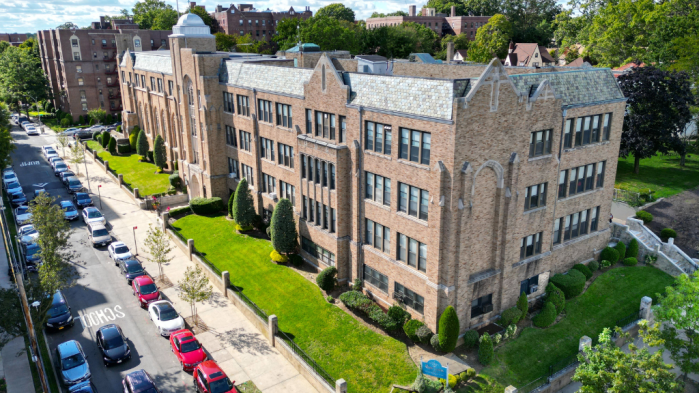Summertime is a good time to study immigration and citizenship law. The City University of New York (CUNY), through its School of Professional Studies (SPS), is offering a special summer section of Introduction to Immigration Law. Take this course now and you will be ready to take advanced immigration courses in the fall. Summer classes begin June 3.
SPS offers the most comprehensive immigration law study program in the nation. If you have a four-year degree, take the courses for CUNY graduate school credit. If you do not have the degree, you may take the courses, but not for credit. Complete the introductory course and two out of four advanced courses for credit, and you’ll earn a Certificate in Immigration Law Studies. For more information, visit the SPS Web site, https://sps.cuny.edu/ or call 212-817-7255.
Q. The immigration service granted my husband Temporary Protected Status (TPS) when he was 14. He had come here illegally at age 10. He got U.S. Citizenship and Immigration Services (USCIS) travel permission (advanced parole) based on his TPS status, so he traveled home to Honduras. Since his last entry was legal and I am a U.S. citizen, can he interview here for permanent residence?
Name Withheld, Brooklyn
A. Your husband can interview here for permanent residence. USCIS spokesman Shawn Saucier confirmed that an “immediate relative” of a U.S. citizen with TPS status, who returned from abroad with USCIS permission, meets the lawful entry requirement for interviewing here (the process called “adjustment of status”). The immediate-relative category includes these relatives of a U.S. citizen: spouse, unmarried child (under age 21), parent of a child age 21 or older, and certain widow/widowers. Put another way, travel by TPS holders with advanced parole permission cures a prior unlawful entry for qualifying for adjustment of status.
Note, however, that travel by TPS holders, even with USCIS permission, may make them subject to the “unlawful presence” bars to permanent residence. Those bars apply to individuals who travel abroad after having been here unlawfully for more than 180 days. Traveling abroad, even with USCIS permission, doesn’t solve a TPS holder’s unlawful presence problem. TPS adjustment applicants subject to the bars would need a USCIS waiver to get permanent residence. To get a waiver the applicant must prove extreme hardship to a U.S. citizen or permanent resident spouse or parent. Your husband isn’t subject to the unlawful presence bars because time unlawfully here before the age of 18 doesn’t count against him. Further, the law considers him lawfully present from when he got TPS status.
Not every undocumented immigrant qualifies for TPS. To qualify, an individual must be from a country the USCIS has designated as a place where civil unrest or natural disaster makes return home risky. TPS holders can work here and travel abroad with USCIS permission. It is returning after travel abroad with USCIS permission that makes a TPS holder eligible to interview here.
Many readers will be asking: Should TPS holders who entered illegally take a chance by traveling and then applying for adjustment of status? TPS holders should check with an expert before applying, but for many it will be worth a try. That’s true even if traveling abroad may make you subject to the unlawful presence bars requiring an unlawful presence waiver. Unlike most undocumented immigrants, TPS holders need not fear deportation if the USCIS denies their permanent residence applications.
Readers and advocates have reported uneven USCIS practice in the tristate area regarding the rules noted here, though they were first discussed in an immigration service memo issued in 1991. If you plan to use TPS travel to qualify to adjust status, take a copy of this article with you to your USCIS adjustment interview.
Allan Wernick is a lawyer and chair of the City University of New York Citizenship and Immigration Project. He is the author of “U.S. Immigration and Citizenship - Your Complete Guide, Revised 4th Edition.” Send questions and comments to Allan Wernick, Daily News, 450 West 33rd Street, New York, N.Y. 10001. Professor Wernick’s web site is www.allanwernick.com.
Allan Wernick’s Immigration column is reprinted from the Thursday, May 22 editions of the New York Daily News.


































